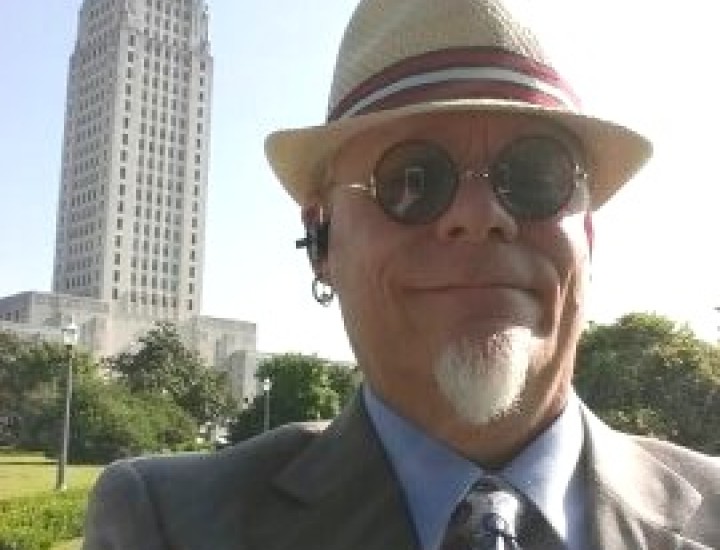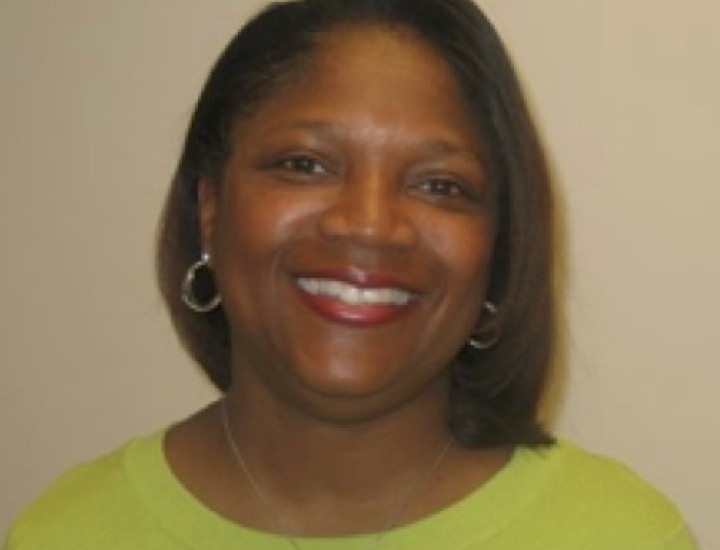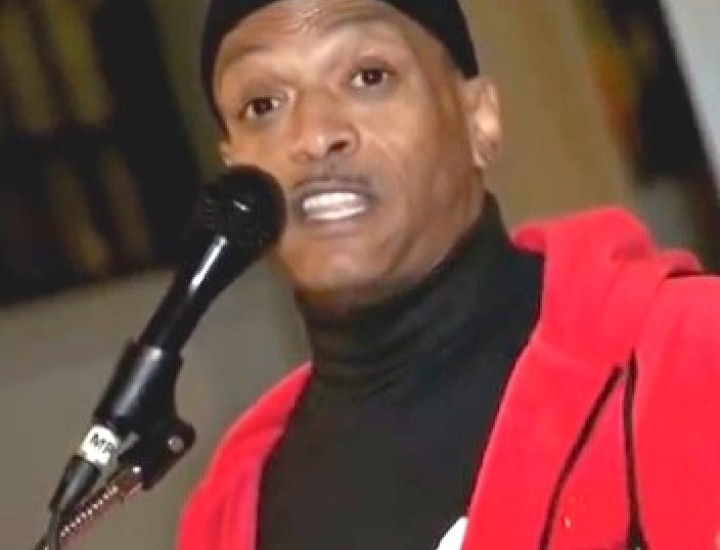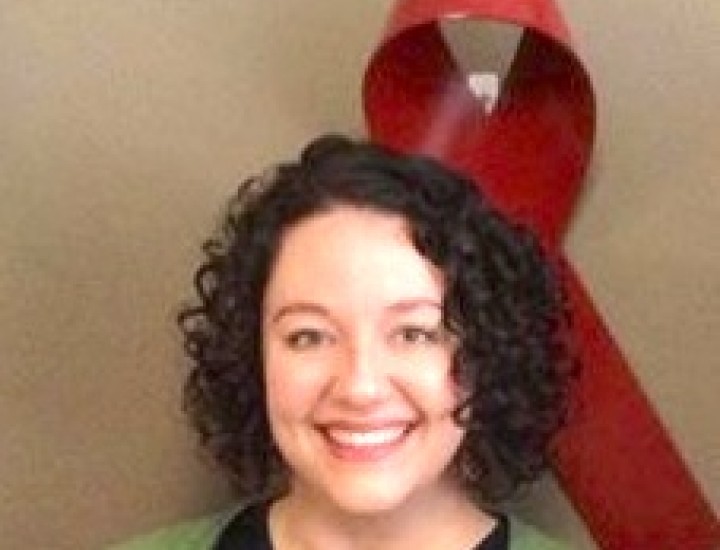Unsung Heroes: Lauren Fanning, Community Advocate, Washington State
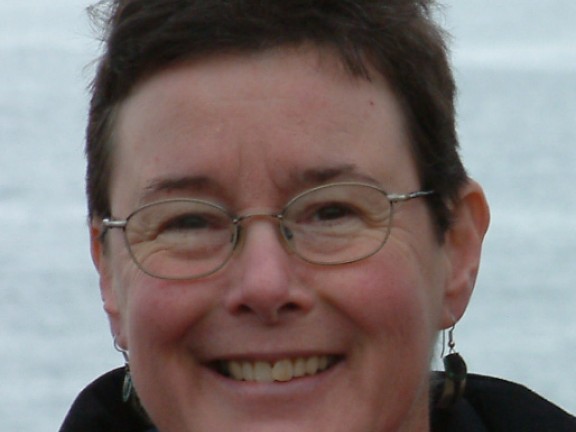
Lauren Fanning is a community advocate living in Washington State, and a member of the Washington HIV/AIDS Community Action Network (WHACAN). Her career of more than thirty years has included providing end-of-life support and education; serving as an HIV test counselor, mental health counselor, and educator; and providing mental health support, case management, and education to prison inmates and staff. She also has worked as a medical and prevention case manager, and worked with people living with HIV transitioning back to the community from prison. Throughout the last 16 years, she has remained involved in local and statewide planning for HIV care and prevention services.
Andrea Sears What is your personal motivation for being involved in the struggle to bring justice in HIV criminalization cases?
Laura Fanning I worked with people with HIV for thirty-two years. From the very beginning they’ve experienced horrible consequences in their lives: the stigma and discrimination. Many of those people were my friends and loved ones. So it probably goes back to that, but I also worked for fourteen years in corrections and worked with many folks who were convicted for HIV-related crimes and saw how much it impacted their lives.
Also, in working as a case manager in the community and in prison, whether it’s an HIV-related crime or not, I have seen the extreme unequal justice in our system. Most of my clients are people who are marginalized and disenfranchised. And, particularly in the last fifteen years or so, I have watched the system deteriorate tremendously.
So often it’s the prosecutor and the public defender sitting down and working out a deal, and convincing the defendant to accept this deal rather than go to trial. It’s rarely about justice. I think some prosecutors use their power to threaten defendants: “If you don’t take this Assault 2 I’m going to charge you with Assault 1,” or, “If you don’t take this Assault 4, I’m going to charge you with Assault 3.” Clients are afraid to risk going to trial.
Our criminal justice system is just way too broken and it’s not applied equally.
AS What are the HIV criminalization laws in the state of Washington?
LF Washington state has a law that specifically names HIV. A person can be charged with “Assault 1” for “causing death or grievous bodily harm” by exposing someone to HIV. More recently we’ve also seen people prosecuted under “Assault 2.” That’s basically a less serious attempt to cause harm and it doesn’t specifically name HIV.
Since 2001, if someone is determined to have had a sexual motivation for their crime, they become a sex offender. Sexual motivation is defined as: “for the purpose of his or her sexual gratification.” This has been applied to folks living with HIV who engaged in consensual sex. We also have enhanced sentencing for folks who are convicted in this category so a determinate sentence can become indeterminate. Instead of getting sentenced to, say, five years, a person may have additional time added to their sentence.
AS How is the actual length of the sentence established?
LF Sentencing is a complicated matter in Washington. If they determine that a crime was sexually motivated the case is sent to the Indeterminate Sentencing Review Board (ISRB). Most offenders are eligible for an early release if they behave and complete their programming while in prison. They are reviewed at their “good time” date and if the board decides they are not a risk to the community they are released. But if the board has concerns the sentence is continued and they set a new review date.
There are two cases, that I know of, in which the defendants were both determined to be sex offenders under the Assault 2 law. One was put into the ISRB and got a much heavier sentence, and the other didn’t go through the ISRB and had a much shorter sentence. I am not sure of the distinction between those two cases, but I think it’s a determination that the judge makes.
AS This sentencing structure seems almost arbitrary and rather extreme.
LF It is on the extreme end of the scale and I think a 2010 case that resulted in a 5 year minimum and 15 year maximum sentence – coupled with sex offender registration – really highlights this problem. The defendant in that case is cognitively challenged. He was in treatment. His viral load was undetectable. He was having consensual sex and did not believe he could transmit the virus. He didn’t disclose. This happened in a very conservative community. He needed an attorney with better knowledge of HIV who would challenge the notion that having consensual sex is intent to harm, and there was a lot of negative publicity, so I think there were many factors involved.
Within a very short time there was another case in that same community. That defendant also was in treatment and undetectable. He didn’t disclose his status, but his partner’s father found out that he was HIV positive and went to the police. He was convicted under the same law and he also has to register as a sex offender. He probably had a five-year sentence, but he got out with good time in three years.
AS What kinds of efforts are there to change these laws?
LF The Washington HIV/AIDS Community Action Network and the Life Long AIDS Alliance have been in discussions with the Center for HIV Law and Policy and other organizations about changing these laws. In 2012 we found out a legislator was about to introduce a bill intended to de-stigmatize HIV. At that point our efforts were diverted to that bill and whether it was going to help, hurt, be better or worse.
The original bill had language in it that was not acceptable. It struck the reference to HIV and basically put in “blood-borne pathogens” as an example of what a “noxious substance” could be and that opened the door to many other diseases being criminalized. So we spent most of that legislative session lobbying against the proposed bill.
The next year he came back with another bill that he thought would address our concerns. It didn’t really and we spent that session again trying to either work something out and, ultimately, trying to stop the bill.
The same legislator continues to want to improve this legislation and we are working with him and other stakeholders to develop acceptable language. But this is an ongoing process. One of the things that we’ve asked for all along is the inclusion of language that would eliminate the sex offender status for having consensual sex unless there was some other sex offense involved in the crime. We are still negotiating over the possibility of a bill that we can accept this year.
AS What do you think you need to get there?
LF I think we need to be more proactive. We worked with CHLP to draft a proposed bill that would address our issues. I think we need to revisit the draft we submitted and see if we can streamline it, perhaps look for additional areas of agreement. We also need to start bringing in a broader coalition of groups ahead of time who would support the bill.
Life Long AIDS Alliance is working on a campaign to end AIDS and embedded within that is trying to do something about HIV-related prosecutions. I have had discussions with the medical director for the King County health department about doing an education campaign for prosecutors and judges. They have spent time working with a judge who sits in the civil court, educating her, and that’s paid off. The judge has been very supportive, very cooperative, worked with them very well.
I think that’s an important part of what we need to do. I don’t believe that prosecutors are necessarily targeting people with HIV, but often they don’t understand all of the issues or the current science. The people who get such long sentences often have extremely poor representation. I don’t know that the outcomes would be any different with better representation, but if the prosecutors and the judges are educated it could change those outcomes.
CHLP’s Unsung Heroes is a series of portraits included in The Fine Print blog of individuals who are contributing mightily, without fanfare, to keep our issues, needed agencies, and members of our communities alive.

